Aristotle claims in Poetics that art is that which makes us feel, a visceral response that connects us with community through a collective emotion. Few pastimes—surfing, sailing, skating, motorcycling, maybe—create a sense of community in which members can look at one another and identify the each as part of the tribe. There is perhaps nowhere where this collective tribalism manifests itself more than in fishing, and if our tribe has a Bethlehem, a Lhasa, a Mecca, or a Varanasi, it’s the Florida Keys, the setting for Ted Caplow’s and Andy Danylchuk’s Fish Navy Films’ What We Fish For, debuting Saturday, December 12, 2015 at Boston’s New England Aquarium.
What We Fish For, though the title does not provide the punctuation to alert us whether it’s a question or a statement, is a exploration of the motivations that drive us to fish. The simplicity of the title’s open-ended punctuation is as brilliant as the film’s premises and the filmmakers’ drive to have us each ask, “What do I fish for?,” while discovering, “This is what I fish for.” The gentle premise of the film, the overarching meme, is the Henry David Thoreau statement that “Many men go fishing their whole lives without knowing it’s not the fish they are after,” a driving thesis that the filmmakers subtly allude to throughout the film’s entirety.
Following four distinct vignettes, the film explores what we could stereotype as definitions of common fishers—Joe Cunningham, the angler out for the hunt; Sarah Curry, the sustenance fisher looking to provide herself with fresh sourced foodstuffs; Andy Danylchuk, the angler seeking to escape and to recreate, rejuvenating the soul; and Ted Caplow, the ocean lover just pleading to commune with and to protect Nature. Each character finds what drives them, while also discovering the challenges or the threats to their particular style of fishing’s existence.
Cunningham, a musician by trade, is fascinated by the inner-drive to catch fish, what makes one desire to chase down and battle a trophy? As many of us here can relate, “It’s not about the food,” he says, “it’s about the hunt.” The battle with the fish highlights the many challenges of life, and Cunningham walks us through his first trophy, almost rekindling our desire to reach into the primal self and discover our Nietzschean Superman that was awakened with the tug of our first fish.

The journalist, Sarah Curry, questions the ideas of mass seafood production and the challenges and inefficiencies of the seafood source chain. Driven from this, she seeks to become her own seafood source chain and follows the route of a sustenance fisher, targeting and chasing her own meal. As she sets out upon her journey, she finds inefficiency through all levels of fishing systems. The message her experience conveys paints a subtle cautionary-tale for the seafood production process and highlights the challenges with all mass-produced foodstuffs. But it’s in her system’s inefficiencies that the next vignette’s character finds his release.
Shifting from expected conservation memes, Danylchuk’s vignette follows the trope of the overworked, needing a vacation, working man escaping the work-a-day to rejuvenate with a fly in hand. But if that trope sounds overworked, the folk at Fish Navy Films have a fresh take on it. Searching for escape, Danylchuk discovers the true meaning of recreating in the words of iconic flyfishing heroes Sandy Moret and Chico Fernandez, both that have made their livings residing in escape and leading thousands to that promised land. As Chico reminds the viewer, “The flats are not a spot, somewhere down there under the boat, but a place.” Defining that place, for Chico, for Moret, for Danylchuk, and for all of us, I guess, is as open as the What We Fish For title. The film allows viewers the room to find that something to be defined later under changing conditions, subjected to moods and environments, something intangible and subjective, something that leaves the viewer seeing the title as both a question and a declaration. But that undefined esoteric place calls into the viewer a need to protect, a space that executive producer Ted Caplow fills well.

Exploring the base and home of the food web, the Keys’ very terra firma, Caplow finds that the very health of the ocean and the Keys are threatened by a sundry list of alarming stressors that may witness the death of our nation’s reefs in our lifetimes. To be certain, the very reefs that support the chains that produce the apex predators we seek are at stake. Caplow’s vignette is the most compelling and densest section, but one that is required and addresses the existential threat that all four stakeholders have a passion for. Just as with the open-ended title, as the credits rolled, I couldn’t find myself either ready to go fish, make the hunt, get dinner, relax, or just damn well go and protect the things I love the most.
What We Fish For is a call to action: a call to seek the depths within us and challenge the leviathans of the abyss; a call to seek our foodstuffs at the local level so we may appreciate it, can own it, and ought to protect it; a gentle call to relax and remember; and a bullhorn’s blare to get off our lazy asses and protect the ocean before it fails under our watch. What We Fish For is the most important fish film we can watch this year; without it and without answering the call it provides, we may not have the piscatorial porn we seek in our salty Shanghai La.


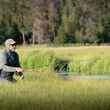
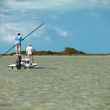



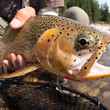
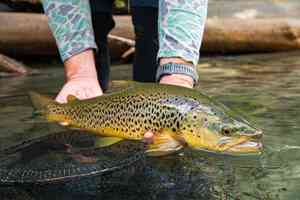




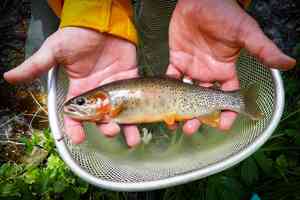
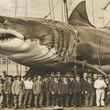

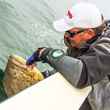




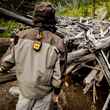




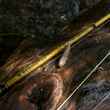
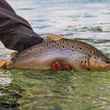


Comments